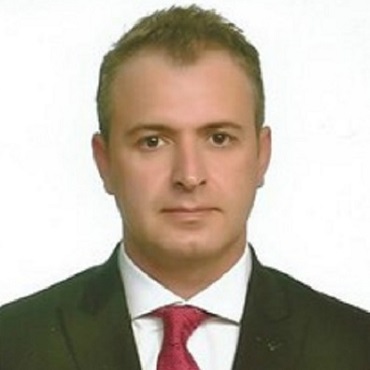
Bahadir Batar
- Professor
- Tekirdag Namik Kemal University
- Turkey
Title :
The effect of Fhit-thymidine kinase 1 pathway on genome stability
Abstract :
Fhit gene is frequently lost or reduced in expression in various human cancers. Fhit loss initiates DNA Double-Strand Breaks (DSBs) and subsequent genome instability. Down-regulation of thymidine kinase 1 (TK1), due to loss of Fhit, causes dNTP imbalance, resulting in spontaneous replication stress that leads to chromosomal aberrations, allele copy number variations, small insertions/deletions and Single-Base Substitutions (SBSs). Therefore, to confirm the role of the Fhit-TK1 pathway in promoting genome stability, we asked if Fhit-deficient cells exhibit decreased levels of DNA damage upon addition of a continuous supply of thymidine, the substrate for TK1, despite the low TK1 protein expression of Fhit-/- cells. We first assessed spontaneous levels of DNA damage by quantifying nuclear ?H2AX foci, marker of DSBs, by indirect immunofluorescence in early passage Fhit+/+ and Fhit-/- kidney cell lines. The FhitFhit-/- cells exhibited <2-fold increases in ?H2AX positive foci vs. Fhit+/+ cells. Levels of DNA damage prior to thymidine supplementation were also measured in these cells by neutral comet assay. We observed a significant elevated levels of DNA damage in FhitFhit-/- vs. +/+ cells. Low level concentration (10 ?M) thymidine supplementation suppressed DSB formation and accumulation of DNA damage in FhitFhit-/- cells. We also demonstrated that Fhit regulates dTTP levels and suggested that this occurs through scavenger decapping of TK1 mRNA. These results revealed that TK1 down-regulation by Fhit loss is a transient step initiating genome instability in preneoplastic lesions. The cause of Fhit-deficient DSBs: Thymidine deficiency-induced replication stress, can be resolved with thymidine supplementation.
Biography:
Bahadir Batar is an Assist. Prof. at the Tekirdag Namik Kemal University Medical School, Turkey. He received his Ph.D. from Cerrahpasa Medical School of Istanbul University in 2013, Turkey. He has worked as a postdoctoral fellow at The Ohio State University Comprehensive Cancer Center during 2014-2016. His primary research interest is in the area of molecular biology and genetics of cancers. Dr. Batar has been working on projects to understand the role of loss of the FHIT and WWOX fragile genes in the initiation and progression of several cancers and therapeutic resistance.
